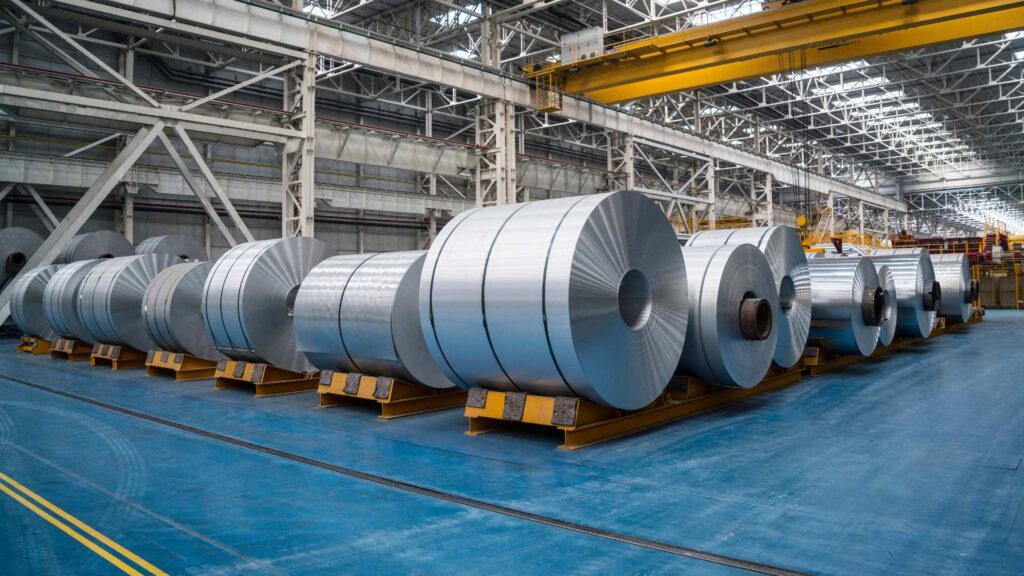India is growing very well in the steel business, mainly due to urbanization and infrastructural development.
India is the world’s second-largest producer and consumer of steel, which is mainly why, in India, the steel business is one of the most important sectors of the economy.
Starting a steel business in India can be a great business idea, but it is not as easy as it sounds.
Starting a steel business in India in 2024 can be profitable, but do not forget the burden it comes with.
But don’t worry we have got you covered in this blog, you will be given a step-by-step guide on how to start a steel business in India in 2024.
Types of steel businesses to choose from
There are varied steel businesses from which you can choose the one that suits your requirements the most. Some of the most popular companies of the Indian steel sector include:
1) Steel Manufacturing: This business requires a large investment. A few large companies, such as Tata Steel, JSW Steel, and SAIL, dominate the Indian steel manufacturing industry. Steel manufacturers produce a variety of steel products, such as TMT bars, rails, beams, plates, coils, stainless steel, and alloy steel.
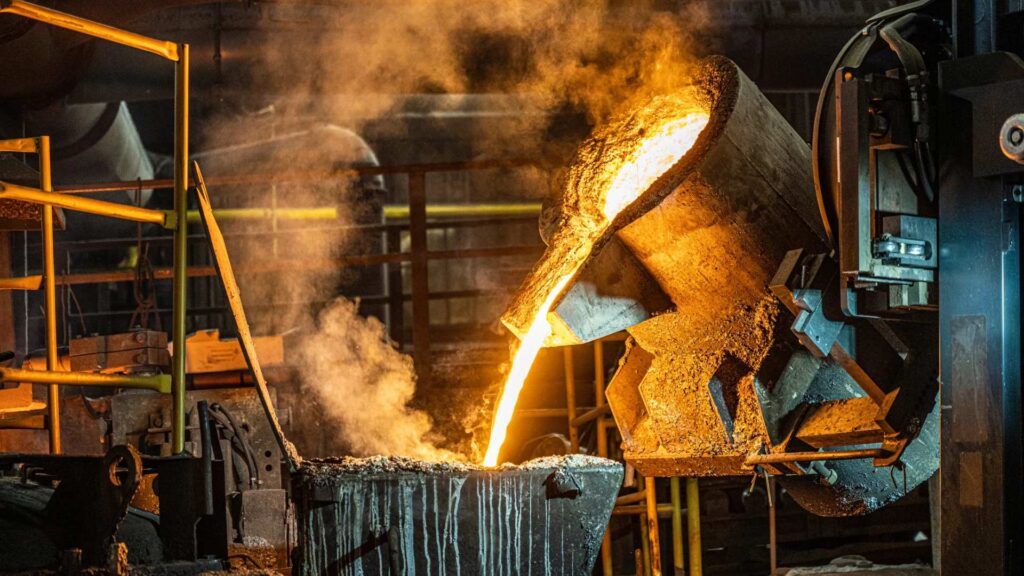
2) Steel Fabrication: This business involves converting raw steel into finished products, such as structural steel, machine parts, and automotive components. Steel fabricators typically have their workshops and equipment.
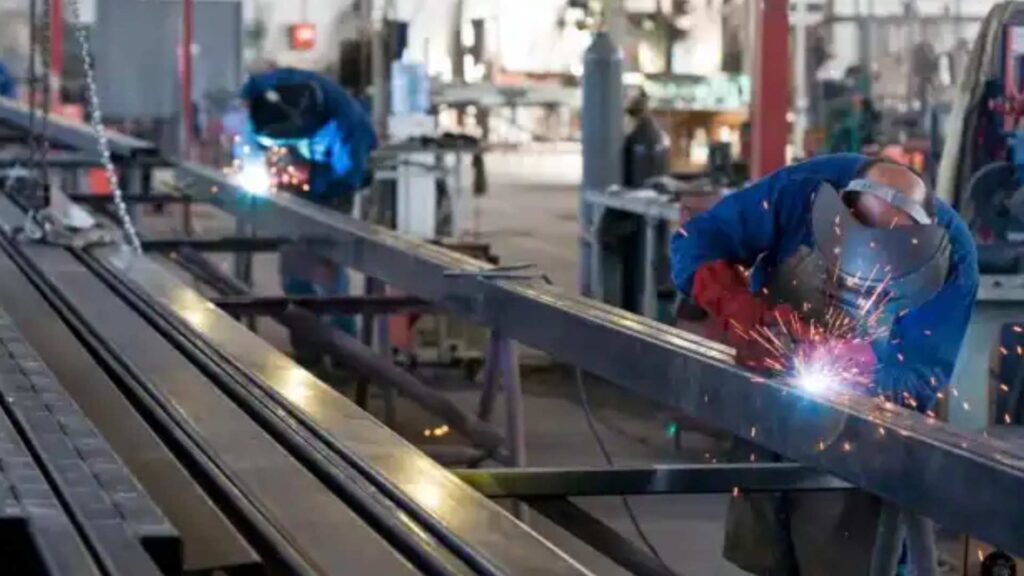
3) Steel Trading & Distribution: This business involves buying and selling steel products. Steel traders typically do not have their own manufacturing or fabrication facilities. Instead, they source steel from manufacturers and suppliers and sell it to end users.
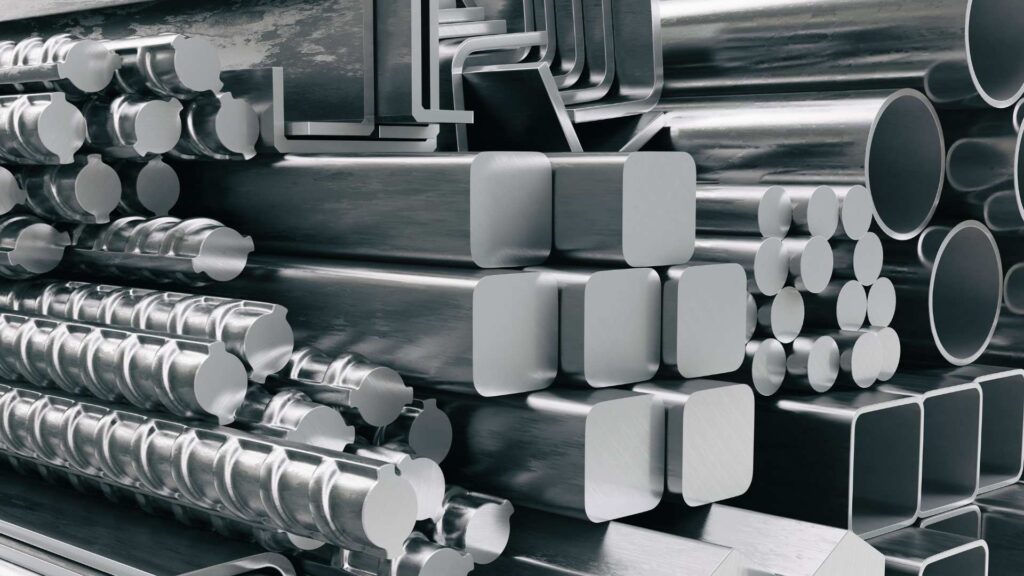
4) Steel Construction: A steel construction business is a company that specializes in the design, fabrication, and erection of steel structures, which are used in buildings, bridges, industrial facilities, and more.
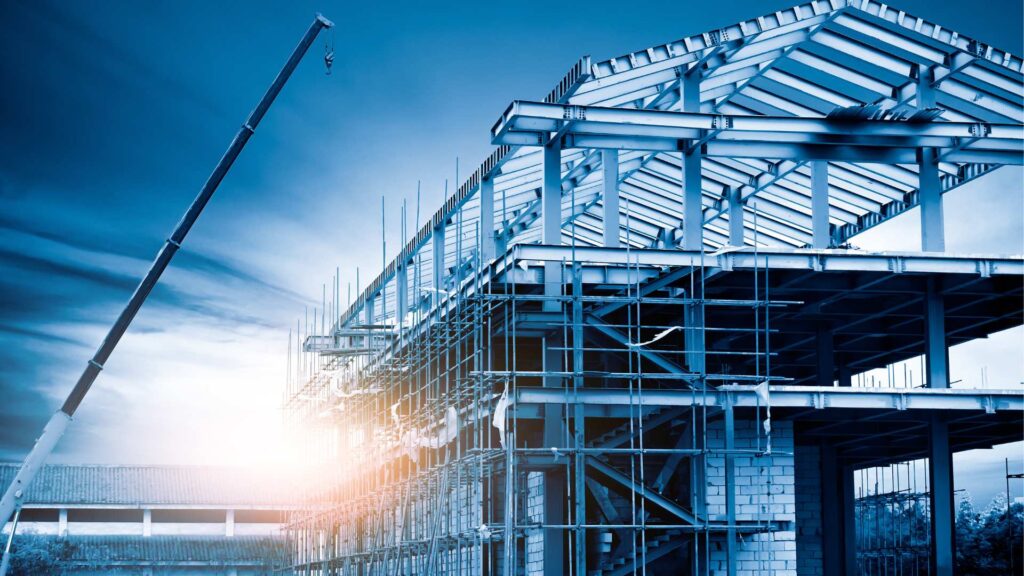
5) Steel Recycling: This business involves collecting and recycling scrap steel. Scrap steel is then melted and used to produce new steel products. Steel recycling is a growing business in India, as it helps to reduce the country’s dependence on imported iron ore.

Investment required to start a steel business
The investment required to start a steel business in India varies depending on the type of business you intend to do. It can range from a few lakhs to crores of rupees.
For example, a small steel fabrication business can be started with an investment of ₹10 lakh to ₹25 lakh. However, a large steel manufacturing plant would require an investment of crores of rupees.
The significant costs associated with starting a steel business in India are:
- Purchase of land
- Infrastructure costs
- Equipment and machinery
- Raw materials
- Labor charges
- Vehicle purchase
You can arrange funds for a steel business through bank loans, finding investors, or utilizing government schemes.
The Indian government offers several schemes to provide financial assistance to new and growing businesses. You should have a well-written business plan before approaching anyone for funds.
Step-By-Step Guide for How to start a steel business in India
1) Developing a Business Plan

Market Research: Use market surveys to gather information from consumers to know the demand for your product, the competition, and the price. Some of the potential customers are construction companies, manufacturing companies, and wholesalers, among others. Understanding competitors can be used to research their strongholds as well as their weaknesses and where they do not fit in the market.
Business Model and Structure: Decide on the type of steel business you want to establish:
- Manufacturing Unit: Manufacturing of steel products.
- Distribution and Wholesale: Supply of steel products from producers to consumers or other dealers.
- Retail: Being a first-line B2B or B2C company.
Depending on your needs, resources, and the size of your business, decide whether to register for Financial Planning.
Develop a detailed financial plan that includes:
- Initial Investment: Machinery cost, raw material price, structures, and licenses cost.
- Operational Costs: Payroll expenses, electricity, water, sewerage, telephone & internet, and conveyance expenses.
- Revenue Projections: Forecasted revenues and gross and net profits.
In case of the requirement of additional funds for the purchase of fixed assets, try to approach bank loans, investors, or government schemes for the promotion of industrial enterprises.
2) Legal and Regulatory Requirements of the steel business

Business Registration: This is required by the Companies Act and can be done on the MCA website free of charge. Based on your kind of business, choose the most appropriate business name and business structure, and do the paperwork. A manufacturing unit needs to register with the Shop and Establishments Act.
Licensing and Permits:
- Industrial License: Needed for operations linked to production.
- Environmental Clearance: Get from the Ministry of Environment and Forests if your business has a significant bearing on the environment.
- Factory License: A document that has been authorized by the local municipal government and is commonly known as a by-law.
- Tax Registration: Register for GST to be GST compliant or to register your business for GST.
Compliance with Standards:
The products you take into mainland India must conform to the IS that has been laid down by the BIS. This shall also assist in ensuring that quality is maintained while the customers gain their trust.
3) Setting Up the Business

Location and Infrastructure: Choose an area that will afford your business operations some form of strategic superiority. They include, among others, the nearness to raw materials, transport system, and availability of skilled labor. Get your manufacturing unit or warehouse equipped with all the machinery and equipment that is requisite.
Invest in high-quality machinery for steel production, including:
- Furnaces: Applied in processes involving smelting of scrap or raw material used in the processes.
- Rolling Mills: For casting and forging of steels.
- Cutting and Bending Machines: These are also used for finished products.
- Testing Equipment: As part of the product quality and conformity to set and established standards.
4. Staffing
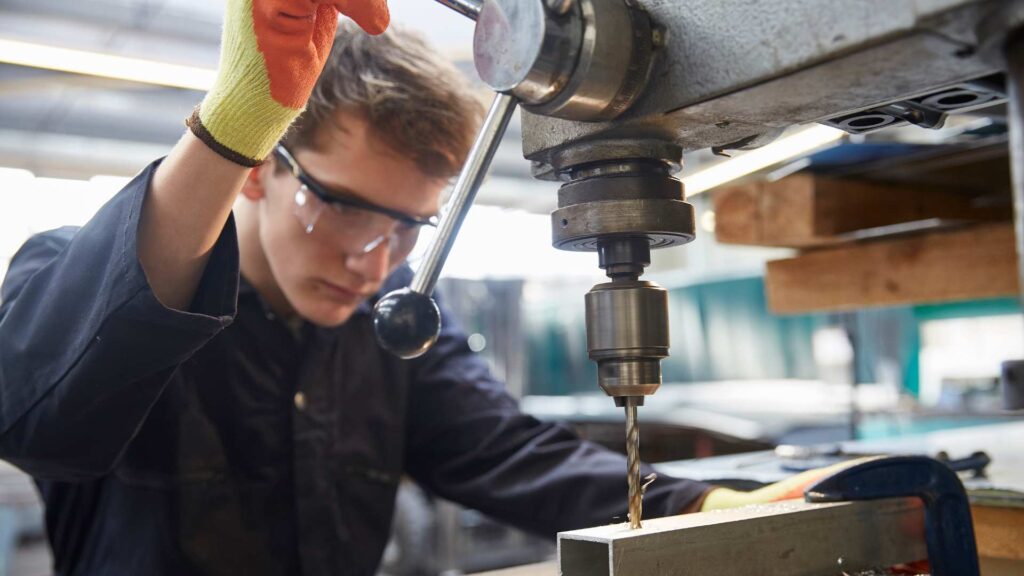
Hire skilled personnel for various roles, including:
- Production Managers: Coordinate production processes.
- Engineers and Technicians: Run and sustain apparatus and equipment.
- Sales and Marketing Staff: Take care of obtaining customers and establishing market access.
- Administrative Staff: Supervise daily operations and are responsible for legal matters.
5. Marketing and Promotion of Your Business

Branding: Create a good image in the marketplace that would make potential and existing consumers of steel products Identify with your steel products. Develop a unique company icon, pick up brand hues, and design a proper website. Your brand should tell the employees, customers, and everyone else that you are reliable, your products are good quality, and that you know what you are doing in the industry.
Digital Marketing:
- Website: Develop a dynamic website for your business listing the products and services offered and how one can reach out to you. Take the help of a Digital Marketing Agency.
- Social Media: Leads can be targeted from LinkedIn and other channels such as Facebook and Instagram amongst the target consumer and B2B customers.
- Search Engine Optimization (SEO): Improve your website in a way that takes the highest search engine ranking, making it easier for customers to locate you.
- Online Advertising: Use Google Ads or social media to align the business with the particular audience to be targeted.
Traditional Marketing:
- Trade Shows and Exhibitions: Exhibit in their trade shows and business fairs to introduce their products to prospective customers.
- Print Media: Place adverts in magazines and newspapers so that many people can get to know about the company and services.
- Direct Mail: Ret Retargeting construction companies, builders, and other potential clients for your products, get them to send you their catalogs.
6. Building Relationships

- Networking: Advertising and public relations agencies should, therefore, be members of industry associations and trade groups.
- Customer Service: Ensure top-quality customer service as this creates trust and loyalty; hence, clients would be willing to work with the firm again.
- Partnerships: Establish yourself and seek out the construction firms, the real estate developers, and other players in the construction industries for business connections.
7. Licenses and registrations required

- The following licenses and registrations are required for a steel business in India.
- Company Registration (Sole Proprietorship/LLP/Pvt Lmt.)
- Trade Licence from the local municipality
- GST Registration
- Pollution Control License from the State Pollution Control Board (SPCB).
- Environmental Clearance from MoEFCC.
- Business Insurance (if required)
These document requirements vary from state to state. You can consult a local chartered accountant to get these documents.
Suggested Read: How to Start a Cloud Kitchen From Home
Conclusion
Since there is an increase in demand for high corrosion-resistance materials from the shipbuilding and marine sectors, it is the perfect time to learn how to start a steel business.
The steel industry has the highest economic linkages in the GDP. Therefore, the steel business market has insane growth opportunities and competition.
I hope this blog helps you start your own business.
Suggested Read: How to Start Tiffin Service From Home
FAQs
1. What are the key factors to consider when starting a steel business?
Starting a steel business requires careful consideration of several key factors:
- Market Demand: Understand the demand for different types of steel products in your target market.
- Business Plan: Develop a comprehensive business plan outlining your strategy, market analysis, and financial projections.
- Regulatory Compliance: Familiarize yourself with industry regulations and environmental standards.
- Funding: Secure adequate financing to cover startup costs, including equipment, raw materials, and operational expenses.
- Location: Choose an area that is strategically positioned for access to raw materials and distribution channels.
2. What are the initial costs involved in starting a steel business?
Initial costs can vary widely depending on the scale and scope of your business but generally include:
- Facility Costs: Purchase or lease of land and buildings.
- Equipment: Costs for steel-making machinery, processing equipment, and safety gear.
- Raw Materials: Initial stock of iron ore, coal, and other necessary materials.
- Licensing and Permits: Fees for obtaining the required licenses and permits.
- Labor Costs: Hiring and training staff.
- Utilities and Infrastructure: Costs for electricity, water, and other utilities essential for steel production.
3. How can I find suppliers for raw materials?
Finding reliable suppliers is crucial for the smooth operation of your steel business. You can:
- Attend Industry Trade Shows: Network with suppliers and manufacturers.
- Join Industry Associations: Connect with industry groups that can provide recommendations.
- Research Online: Look for suppliers through industry directories and online marketplaces.
- Visit Potential Suppliers: Establish relationships and assess their reliability and quality control processes.
4. What are the main types of steel products I can produce?
Steel products vary widely and include:
- Structural Steel: Used in construction for buildings, bridges, and infrastructure.
- Flat Products: These are steel plates and coils used in manufacturing and automotive industries.
- Long Products: Includes rebar and sections used in construction and infrastructure.
- Specialty Steel: Includes stainless steel and alloy steel for specific applications.
5. How do I ensure quality control in steel production?
Quality control is critical in steel production. Key practices include:
- Implementing Quality Standards: Adhere to industry standards such as ISO 9001.
- Regular Testing: Conduct tests on raw materials and finished products to ensure they meet specifications.
- Training: Ensure that your staff is well-trained in quality control procedures.
- Monitoring Processes: Automated systems are used to monitor and control production processes.
6. What environmental regulations should I be aware of?
Steel production has significant environmental impacts, and you must comply with regulations such as:
- Emission Standards: Regulations on air quality and emissions of pollutants.
- Waste Management: Proper disposal or recycling of waste products and by-products.
- Energy Efficiency: Compliance with standards aimed at reducing energy consumption.
- Water Usage: Regulations concerning water usage and discharge.
7. How can I compete with established steel companies?
To compete effectively, consider:
- Differentiation: Offer unique products or services that set you apart.
- Customer Service: Provide excellent customer support and build strong relationships.
- Cost Efficiency: Optimize your operations to reduce costs and offer competitive pricing.
- Innovation: Invest in technology and innovation to improve product quality and production efficiency.
8. What are the financing options for a steel business?
Potential financing options include:
- Bank Loans: Traditional loans from banks or financial institutions.
- Venture Capital: Investment from venture capitalists in exchange for equity.
- Grants and Subsidies: Government programs that provide funding or support for new businesses.
- Private Investors: Investment from individuals or groups interested in funding your business.
9. How can I market my steel products effectively?
Effective marketing strategies include:
- Online Presence: Develop a professional website and utilize social media.
- Industry Events: Participate in trade shows and industry conferences.
- Networking: Build relationships with potential clients and partners.
- Direct Sales: Implement a direct sales strategy to reach target customers.
